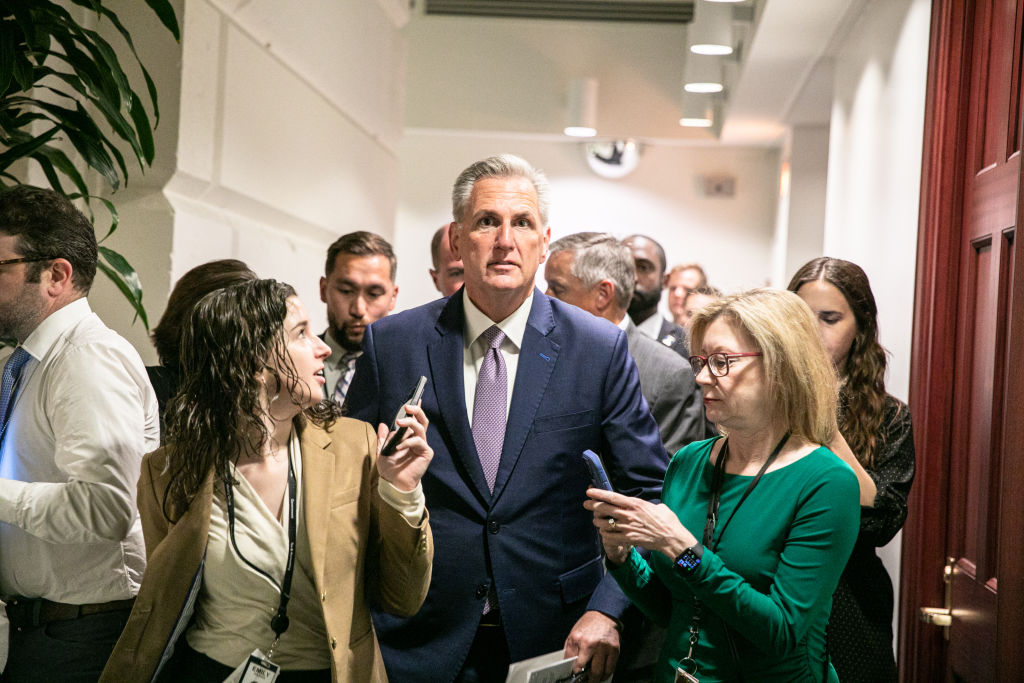
The fight over the U.S. debt ceiling is a major economic and political story. If Congress and the White House don’t come to an agreement in the coming weeks, the U.S. risks defaulting on its debt. This could spark an economic crisis in the short term and make the U.S. a less reliable creditor in the long term. All of this would have enormous political consequences for politicians in Washington.
In theory, the debt ceiling fight might have big implications for U.S. climate policy, too. House Republicans passed legislation last week to repeal provisions of the Inflation Reduction Act (IRA), President Joe Biden’s landmark climate law, as a condition of raising the debt ceiling. But this legislation won’t become law. The Democratic-controlled Senate won’t pass it, and President Biden has already promised to veto it.
Nonetheless, taking a closer look at the bill and how it came about can tell us a lot about why the IRA is so durable.
The final legislation that passed the House last week was the result of a compromise between two factions: rank-and-file Republicans who wanted to eliminate IRA tax incentives entirely and a group of Republicans from the midwest who refused to support cuts to ethanol tax credits.
More from TIME
The ethanol industry, which makes biofuels from corn, is a significant employer in the midwest, and cutting government support for the industry would obviously harm the region’s economy. To win that faction’s support, House Speaker Kevin McCarthy kept the ethanol tax credits in the GOP’s proposed legislation to mostly gut IRA-related tax credits—which passed the House with only Republican votes, and now faces Senate approval. “As negotiations continue, we have made it crystal clear that we will not support any bill that eliminates any of these critical biofuels tax credits,” the midwestern representatives said in a statement after the bill passed.
A version of this story also appears in the Climate is Everything newsletter. To sign up, click here.
The ethanol industry has been around for decades and policies that support it have famously been an area of bipartisan agreement in midwestern states like Iowa. The IRA may soon place industries like wind and solar on a similar pedestal. The IRA’s tax incentives have spurred dozens of large investments in clean technology manufacturing projects across the country, many of which are in traditionally red areas. That’s especially the case in the southeastern U.S. Manufacturers have announced a total of seven new facilities in Georgia and South Carolina alone since the passage of the IRA, according to a report from the American Clean Power Association, an industry trade group.
Indeed, some Republicans who ultimately supported the bill made clear their concern about repealing the clean energy provisions and said they supported the proposal as an opening gambit. “Every single one of us knows that [April 30] was nothing more than a mechanism to get Kevin [McCarthy] and the president to sit down and deal with an existential threat,” Fitzpatrick told E&E News. “If there was a 1 percent chance of any of these provisions ever becoming law, a lot of us would have treated that very differently.”
Supporters of clean energy condemned the legislation stridently. But they also don’t seem too fazed. The Senate is controlled by Democrats and would never pass such cuts. Even if it did, Biden has already promised to veto it. But, perhaps more importantly, as more green investment occurs in red districts and more new jobs are created there, the appeal of repealing the IRA will continue to fade. As Pete Maysmith, senior vice president of campaigns at the League of Conservation Voters, says: “The allure of these tax incentives is strong.”
More Must-Reads From TIME
- The 100 Most Influential People of 2024
- Coco Gauff Is Playing for Herself Now
- Scenes From Pro-Palestinian Encampments Across U.S. Universities
- 6 Compliments That Land Every Time
- If You're Dating Right Now , You're Brave: Column
- The AI That Could Heal a Divided Internet
- Fallout Is a Brilliant Model for the Future of Video Game Adaptations
- Want Weekly Recs on What to Watch, Read, and More? Sign Up for Worth Your Time
Write to Justin Worland at justin.worland@time.com